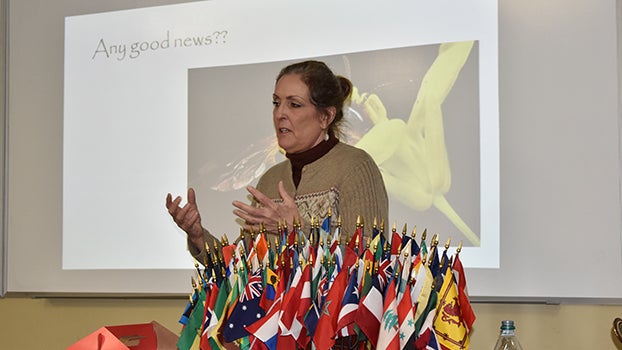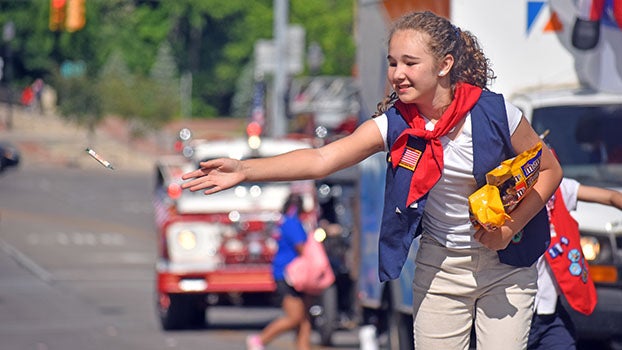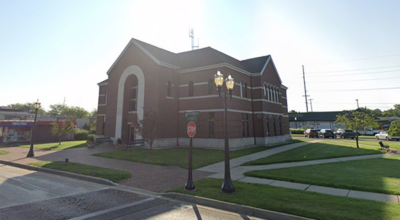LMC professor presents on bee population decline
Published 10:02 am Friday, March 8, 2019

- Sharon Klemm explains the causes of declining bee populations and importance of create eco-friendly yards at a Rotary meeting Thursday. (Leader photo/ADAM DROSCHA)
DOWAGIAC — Americans like their lawns. Plush, green grass, ornate flower beds and new, exotic plants to show off to friends and neighbors can be the pride and joy of any Midwesterner.
But according to professor Sharon Klemm of Lake Michigan College, America’s love of pretty yards has not only brightened suburbia and amped friendly neighborhood competition, but it has also decimated honeybee populations and left them more susceptible to harmful invaders.
“Some plants that are pleasing to us don’t serve a whole lot of purpose out in the natural world,” Klemm said. “We know that habitat destruction is one of the problems that’s giving bees problems.”
For 30 years, Klemm taught communication and environmental ethics course at LMC. Alongside her teaching profession, Klemm has kept bees of her own and studied the outside influencers that have harmed honeybee populations in alarming ways.
The crux of her presentation to the Dowagiac Rotary Club came back to two core points: 1) habitat destruction is hurting bee populations, and 2) the introduction of foreign plants and animal species has caused significant damage to the local ecosystems.
Klemm spent the bulk of her presentation talking about Varroa mites, small parasites of the arachnid family that cling specifically to honeybees at all stages of life. From birth to adulthood, Varroa mites can feed off bees, crippling their ability to fly and devastating colonies from the inside out. Although there is little that can be done to curb the havoc and spread of Varroa mites as they are incredibly difficult to combat and already exist in the entirety of the continental U.S., the mites came back to Klemm’s primary points because they are an invasive species.
For the Rotary Club, however, Klemm was an example of environmental consciousness. To the dismay of some of her neighbors, Klemm turned her yard into an ecosystem consisting entirely of native Michigan plants in an effort to provide honeybees with their most natural and nourishing environment. That has often meant that her yard is overgrown with what some would consider weeds and unsightly shrubs.
“I just went out and dug out my yard, and I replanted in native plants and native trees and native bushes,” Klemm said. “I am breaking every cultural norm… The cultural norm in America is people have yards.”
Klemm’s example of her yard and beekeeping was an encouragement to the Rotary Club to take it upon themselves to be more environmentally conscious and ethical. Klemm hopes instead of thinking first about how pretty a particular plant will be, people will think about how plants will benefit the local ecosystem in everything from butterflies to honeybees.
“We have to think about this stuff more,” Klemm said. “Do we really want to make these kinds of sacrifices because we won’t plant some flowers? We have to make a decision. What kind of world do we want? Do we want to change our behavior to let other beings live with us, or are we going to be so stubborn we’re going to continue forth, and that’s the way it’s going to be? We drive everything out of existence and say, ‘Whelp. Too bad for them.’”






